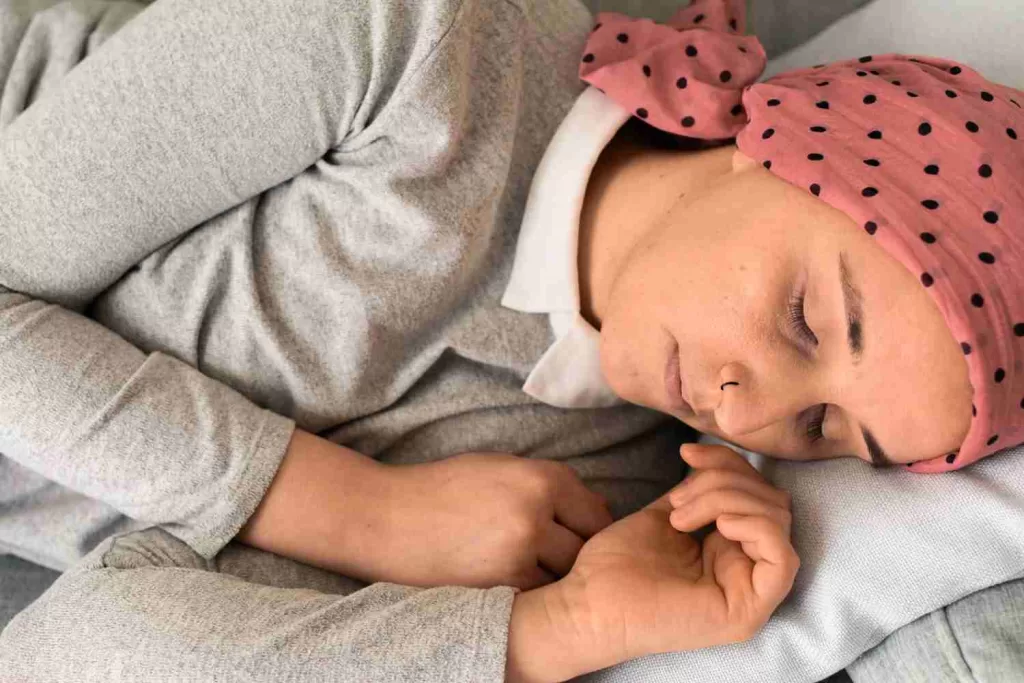
January is Cervical Cancer Awareness Month, an important time to raise awareness about cervical cancer prevention and early detection. While regular screenings and HPV vaccinations are the primary ways to protect against cervical cancer, healthy lifestyle choices, like quality sleep, also play a key role in prevention and overall well-being—especially when facing health challenges like cancer. This post explores how maintaining healthy sleep habits can reduce cancer risks and support recovery, even for those diagnosed with cervical cancer.
Cervical Cancer and Sleep: An Unexpected Connection
Sleep and cancer might not seem directly related at first, but numerous studies have shown a strong connection between healthy sleep and a well-functioning immune system. The immune system is essential in fighting infections, including the human papillomavirus (HPV)—the leading cause of cervical cancer. Chronic sleep deprivation, on the other hand, can weaken immune function, making it harder for the body to resist infections like HPV, as well as other harmful changes that increase cancer risk.
Poor sleep can also disrupt hormone regulation and cause inflammation, both of which are factors linked to cancer development. Melatonin, a hormone released during sleep, helps regulate the body’s circadian rhythm and has shown protective effects against cancer. Ensuring enough restorative sleep each night can encourage the natural production of melatonin and strengthen the body’s defenses against infections and cellular changes that might lead to cancer.
While healthy sleep alone won’t prevent cervical cancer, it’s a piece of the prevention puzzle.
- Supports Immune Health
During sleep, the body produces cytokines, proteins that help combat infection and inflammation. A well-rested immune system is more efficient at targeting and destroying cells that may mutate into cancerous cells. Adequate sleep, ideally 7-9 hours per night for adults, strengthens immunity, possibly lowering the risk of infections that can lead to cervical cancer.
- Reduces Inflammation
Chronic sleep loss is linked to inflammation, which plays a role in cancer development. Inflammation can create an environment where abnormal cells can thrive, increasing cancer risk over time. Consistent, high-quality sleep can mitigate inflammation levels, lowering potential cancer risks.
- Balances Hormone Levels
Sleep also impacts hormones like melatonin, which has natural antioxidant properties. Melatonin helps protect against DNA damage, which can lead to cancer when left unchecked. Maintaining regular sleep patterns can keep these hormones balanced, contributing to overall cellular health and cancer resistance.
Sleep During Cancer Treatment: How Rest Aids Recovery
For those undergoing treatment for cervical cancer, sleep is critical for recovery. Cancer treatments like chemotherapy and radiation can cause extreme fatigue and disrupt sleep patterns, impacting both physical and mental health. Here’s how sleep helps during cancer treatment:
- Reduces Treatment Side Effects
Many treatments for cervical cancer come with side effects like nausea, pain, and fatigue. Quality sleep supports the body’s ability to recover and reduces some of these side effects, helping patients feel stronger and better equipped to face their treatment regimens.
- Enhances Immune Response
During treatment, a well-functioning immune system is more important than ever. Sleep
supports immune function, aiding the body in fighting off infections and supporting
healing. Patients who get adequate sleep may experience fewer infections, allowing
them to focus their energy on recovery.
- Supports Mental Health
A cervical cancer diagnosis can take a toll on mental health, often leading to stress,
anxiety, and depression. Healthy sleep can help reduce anxiety and improve mood
stability, which is especially important during challenging times. Getting enough rest can
also improve cognitive functioning, helping patients better cope with the emotional
challenges of treatment.
- Improves Overall Quality of Life
While cancer treatment can be exhausting, good sleep quality can significantly improve patients’ overall quality of life. Sleep helps create a more positive outlook by reducing stress, managing pain, and restoring energy, which can be vital for recovery and well-being.
This January, consider sleep as a vital part of cervical cancer prevention and recovery. As science continues to explore the connections between sleep, immunity, and cancer, it becomes clear that healthy sleep is foundational to our overall well-being. The Alaska Sleep Clinic can help create a healthy sleep plan. Call today for a free consultation.










